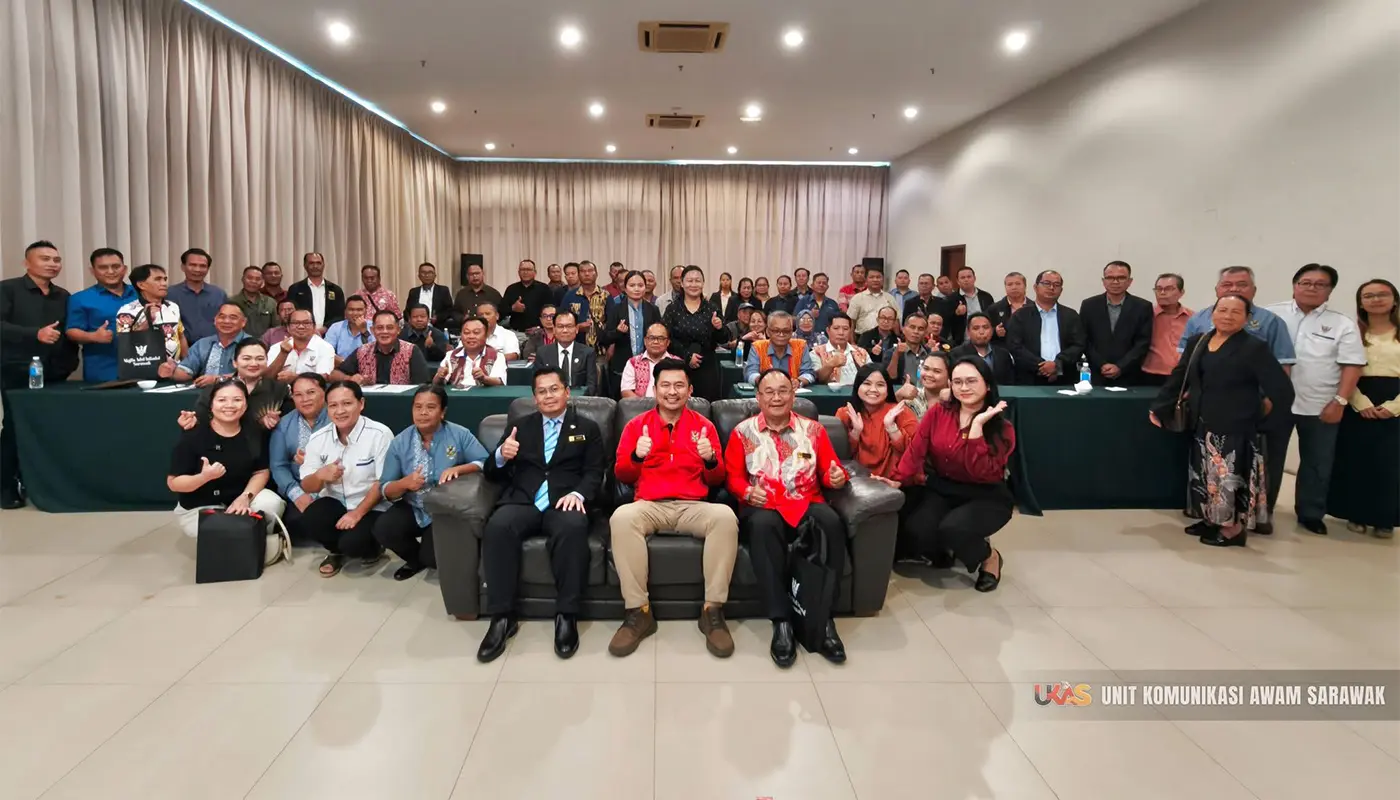MUKAH – The rich tapestry of ethnicities and religious beliefs in Sarawak is often hailed as the bedrock of social unity, according to prominent local leaders.
During the closing ceremony of the 1993 Iban Customary Law Seminar for Mukah District Tuai Raban Bansa (Re-Elected), Tellian assemblyman Royston Valentine emphasised that mutual acceptance and respect are central to Sarawak’s peaceful coexistence.
He characterised the state’s multi-racial harmony as the product of a people willing to embrace difference.
“Customs and culture remain the main pillars of the people’s identity, and become a guide in everyday life. Customs are of great importance and should be preserved by our people,” he said.
Valentine took the opportunity to appeal particularly to village chiefs and newly appointed tuai rumah (longhouse heads) to deepen their understanding of customary law so that elder-led guidance anchored in tradition can continue.
He also underscored that village leaders should acquire technical skills to communicate with residents effectively using modern methods.
“If each other is not united or there is a quarrel, it will affect the success and hinder development in the country,” he warned, urging stronger collaboration between village chiefs and community leadership groups (KMKK) for rural progress.
The seminar’s objective was to sharpen the capabilities of elder leaders in applying the Iban Adat 1993, thereby reinforcing the relevance of customary law in contemporary practice.
Context and Broader Significance
Sarawak is home to diverse indigenous groups including Iban, Kayan, Kenyah, Kelabit, Murut, Bidayuh, Melanau, and others, in addition to Malay and Chinese communities.
Only Malays and some Melanau are majority Muslim, while many indigenous groups retain animist or Christian traditions.
Customary law, or Adat, especially Adat Iban 1993, has been central to indigenous governance structures. State initiatives to preserve and modernise these laws have been underway, for instance, the Sarawak Council for Native Customs and Traditions (Mais) is actively reviewing and codifying various indigenous customary codes to align tradition with modern realities.
Scholarly work sees Adat Iban as a dynamic, living legal-cultural framework, one that must adapt while preserving identity.
Valentine’s remarks resonate with the wider effort in Sarawak to balance cultural preservation with inclusive development.
His urging that village leaders master both traditional wisdom and modern tools reflects the challenge many indigenous communities face in bridging past and present.
Also present at the ceremony were Mukah District Officer Peleadzman Ahip, Dr Lambat Lindong (chief of Raban Bansa Research Section), and Angela Geruna (head of the Corporate Services Section).
As Sarawak seeks to maintain its social cohesion amid evolving demographics and development pressures, speakers like Royston Valentine believe that ethnic diversity, guided by respect and tradition, remains a decisive advantage.





